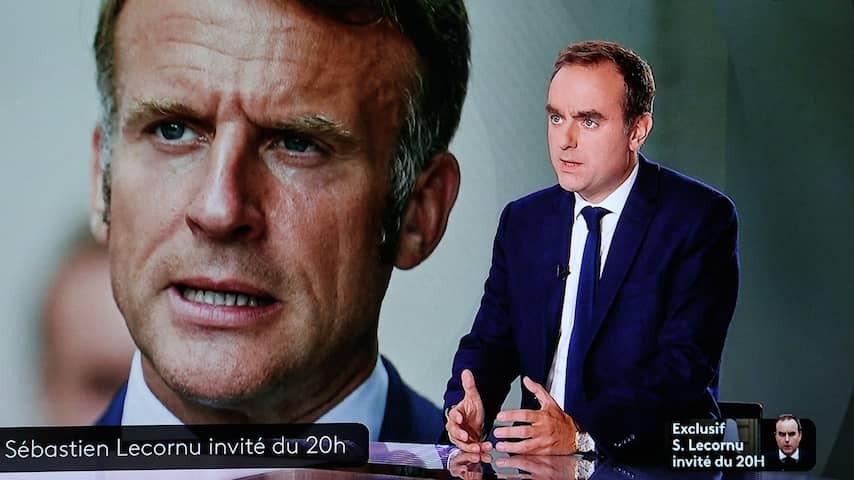
French President Emmanuel Macron will appoint a new prime minister within 48 hours, he announced on Wednesday evening. According to outgoing Prime Minister Sébastien Lecornu, a majority of parliament is against new parliamentary elections.
Lecornu unexpectedly announced on Wednesday that he would resign. He had just appointed a cabinet, but said he found too little support in parliament. At Macron’s request, he held talks with all parties in parliament over the past two days to see whether he could solve the political crisis.
These conversations show that a majority of MPs want new elections. “There is a platform for stability,” Macron said in a statement. If Macron does not appoint a new prime minister, new parliamentary elections would be an obvious option. Now they seem to have been averted for the time being.
It is not yet known who could become the new prime minister. As far as Lecornu is concerned, his work is done, he said on Wednesday evening.
A new prime minister would be the sixth in two years. For Lecornu, Michel Barnier and François Bayrou, among others, were voted out as prime minister because of their austerity plans.
Budget is still a point of contention
The budget is still the point of contention. After the round of discussions, Lecornu does think that enough parties are willing to conclude an agreement on the budget. “I feel a way out is possible,” he said in a TV interview.
Opposition parties immediately called for new parliamentary elections after Lecornu’s resignation. Some politicians believe that Macron himself should resign. Macron’s mandate runs until May 2027. He has already stated several times that he does not intend to leave before then.
French President Emmanuel Macron will appoint a new prime minister within 48 hours, he announced on Wednesday evening. According to outgoing Prime Minister Sébastien Lecornu, a majority of parliament is against new parliamentary elections.
Lecornu unexpectedly announced on Wednesday that he would withdraw. He had just appointed a cabinet, but said he found too little support in parliament. At Macron’s request, he held talks with all parties in parliament over the past two days to see if he could resolve the political crisis.
These talks show that a majority of parliamentarians want new elections. “There is a platform for stability,” Macron said in a statement. If Macron does not appoint a new prime minister, new parliamentary elections would be an obvious option. Now they seem to be averted for the time being.
It is not yet known who the new prime minister could be. As far as Lecornu is concerned, his work is done, he said on Wednesday evening.
A new prime minister would be the sixth in two years. Before Lecornu, Michel Barnier and François Bayrou, among others, were voted out as prime minister because of their austerity plans.
Budget is still a point of contention
The budget is still the point of contention. However, after the round of talks, Lecornu thinks that enough parties are willing to reach an agreement on the budget. “I feel that a way out is possible,” he said in a television interview.
Opposition parties called for new parliamentary elections immediately after Lecornu’s resignation. Some politicians believe that Macron himself should withdraw. Macron’s mandate runs until May 2027. He has repeatedly stated that he does not intend to leave earlier.